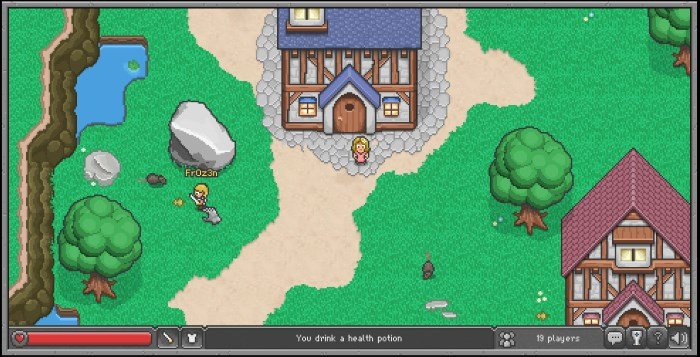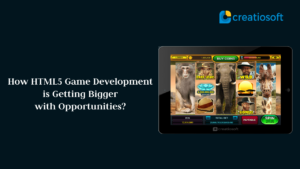In the realm of digital entertainment, HTML5 has emerged as a formidable force, heralding a paradigm shift in the way games are developed and consumed. This technology, which boasts cross-platform capabilities, has galvanized a vibrant community of developers eager to explore the potential of open-source gaming. Open-source projects present an unparalleled opportunity for creativity, collaboration, and innovation. This article endeavors to unveil the captivating world of HTML5 open-source games, illuminating the free resources available for developers and situating them within the broader context of contemporary digital game development.
Understanding the allure of open-source games necessitates an exploration of key principles and foundational elements. Open-source gaming embodies the ethos of community-driven development, wherein developers from diverse backgrounds converge to create immersive experiences. These games afford players not merely the opportunity for entertainment but also the ability to collaborate, modify, and adapt the games to suit their preferences. The license under which open-source software operates fosters a vibrant ecosystem where innovation knows no bounds. In this environment, developers can harness the powers of HTML5 technology to design and distribute their games without the constraints imposed by proprietary software.
Broadly categorizing HTML5 games into genres helps elucidate their diversity. Action-adventure, puzzle, platformers, and role-playing games are just a few examples of the various categories that can be developed using HTML5. Each genre encapsulates unique gameplay mechanics and thematic elements that appeal to different player demographics. A thorough understanding of these genres can guide aspiring developers in carving out their niche within the gaming landscape. To effectively engage potential players, developers must also consider integrating compelling narratives and intuitive gameplay mechanics that capture and retain user attention.
The initial undertaking of creating an HTML5 open-source game can be daunting. However, various platforms and resources will simplify the process considerably. Knowledge of programming languages such as JavaScript, HTML, and CSS is essential, as they form the backbone of HTML5 development. Tools such as Phaser, Three.js, and Babylon.js serve as robust frameworks that facilitate the creation of dynamic gameplay experiences. Each of these tools comes equipped with comprehensive documentation, tutorials, and a community of developers ready to lend support.
Enthusiastic newcomers should explore resources such as GitHub, where numerous repositories showcase exemplary HTML5 open-source projects. These repositories serve as a treasure trove of inspiration, offering budding developers insights into well-crafted code, gameplay mechanics, and user interfaces. An invaluable aspect of GitHub is the collaborative nature; developers can contribute to existing projects or initiate new ones, further enriching the open-source landscape. Through this ecosystem, developers can cultivate their skills while simultaneously contributing to the community.
Embracing a multitude of game engines is essential for any developer aiming to enrich their portfolio. Engines like Construct, which is specifically designed for 2D game development, present an intuitive interface, thus lowering the barrier to entry for novice developers. For those seeking to craft striking 3D environments, engines such as Unity, particularly with its capability to export to HTML5, should be considered. The choice of engine will directly influence the gameplay experience, and familiarity with several engines can provide developers with a versatile toolkit to suit various project needs.
The allure of open-source gaming extends beyond mere development; it extends into the realm of player engagement. One of the most radical developments in the gaming world is the necessity of community support for the game’s sustainability. Developers are encouraged to take advantage of community forums, social media platforms, and streaming services to foster a dialogue with their audiences. The importance of gathering feedback cannot be overstated; player perspectives can inform crucial design decisions and facilitate iterative improvements. Engaging directly with players cultivates loyalty, ensuring that games are not mere products but rather ongoing projects shaped by those who interact with them.
Collaboration among developers has transformative potential. By pooling resources with peers, aspiring game developers can embark on collaborative projects that leverage the strengths of each member. Such partnerships encourage shared learning, as team members draw from one another’s experiences and skills. In a world that often emphasizes individual accomplishment, the importance of teamwork should not be overlooked. Shared projects can lead to innovative outcomes that would be unattainable in isolation.
While many open-source HTML5 games are available for free, an emerging trend involves introducing monetization strategies that do not detract from the player experience. Leveraging methods such as in-game purchases, crowdfunding via platforms like Patreon, or offering premium versions of games with additional content can provide sustainable revenue streams. Navigating monetization requires a careful balance to ensure that developers respect their players, providing value while maintaining the ethos of open-source development.
In conclusion, the world of HTML5 open-source games is a dynamic and accessible domain, rich with potential for developers at all levels of expertise. Armed with an array of resources, tools, and a supportive community, both novices and seasoned developers are well-positioned to create compelling gaming experiences. Open-source gaming not only supports creative expression but also promotes collaboration and innovation within the gaming ecosystem. The time has come for aspiring developers to seize the opportunities presented by HTML5 and contribute their unique visions to the vibrant tapestry of open-source gaming. The challenge has been set—are you ready to answer the call?


